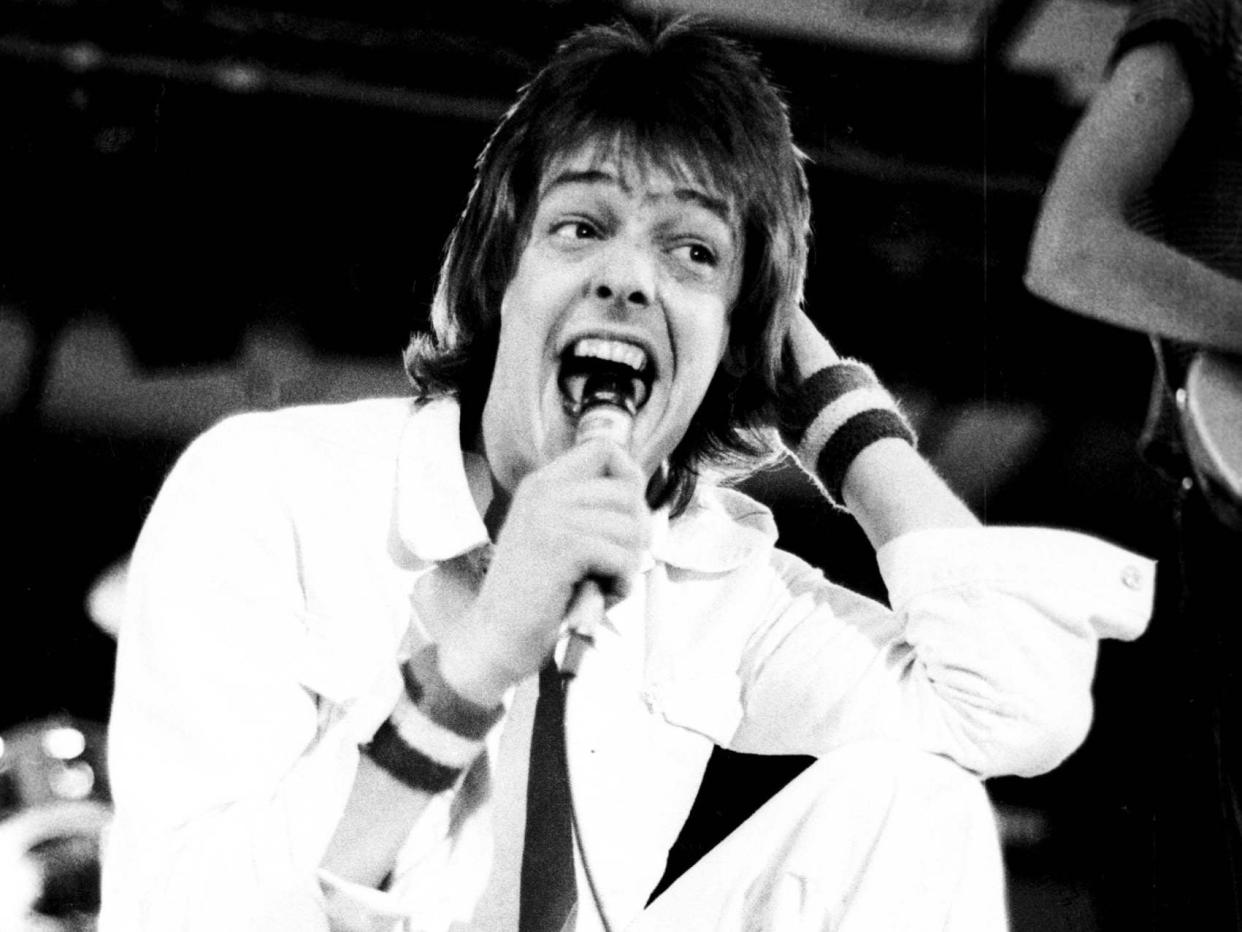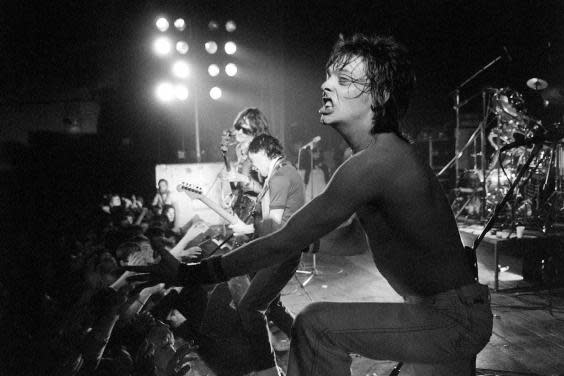Barrie Masters: Singer with Eddie and the Hot Rods who fired up late-Seventies UK rock

Barrie Masters, the lead singer of Eddie and the Hot Rods – the Essex band who fired up the UK’s rock scene in the mid-1970s – has died after a long illness aged 63. Eddie and the Hot Rods scored a memorable Top 10 single in 1977 with the anthemic “Do Anything You Wanna Do”. If the band never replicated this – and so failed to achieve the success many expected them to – Masters ensured the Hot Rods remained one of the UK’s most exciting live bands.
First formed in Southend, Essex, in 1973 as a quartet with guitarist Dave Higgs as band leader, the Hot Rods cut their teeth playing local pubs and clubs. While the teenage Barrie Masters possessed the boyish good looks associated with pop stars such as David Cassidy and David Essex, the band drew their inspiration not from teenybop icons but such raw, high-energy bands as Canvey Island’s Dr Feelgood and Detroit’s the MC5.
The landlord of Essex pub the Blue Boar allowed the Hot Rods a residency on the provision that they would play for a pittance until they drew an audience. Word of mouth about the Hot Rods’ dynamic performance meant the band quickly packed the pub and this inspired them to look towards London: by late 1975 they were playing the Nashville and Hope & Anchor, noted live music venues in the capital.
Gaining a residency in 1976 at Soho’s Marquee club, the Hot Rods broke attendance records, secured a contract with Island Records and released an EP, Live At The Marquee, four covers of rock standards played at breakneck speed that captured the Hot Rods’ exuberance. The EP reached No 43 in the UK charts and won them a performance on Top of the Pops. Joe Strummer, then playing in pub rock band The 101ers, would later note that the Hot Rods were a significant new force on the London rock scene. Radio 1 DJ John Peel described them as the first group of the era “to give me an indication that there was change in the air”.
The band released their debut album Teenage Depression in late 1976 but it was their polished second album, Life on the Line, that gave the band a Top 10 single with “Do Anything You Wanna Do” and showcased their strengths. This success, combined with Masters’ cherubic features and athletic stage performances, helped to establish the Hot Rods internationally and they looked to be one of the first of the new UK rock bands to breakthrough to a worldwide audience.
During this time they were feted in the music press, though they were initially mislabelled by some commentators as a punk band: in February 1977 the NME named Eddie and the Hot Rods the most promising emergent act of the year, but by the end of the year they had been overtaken by The Sex Pistols, The Clash and other bands with a more abrasive, original sound and stronger songwriting.

The band’s third album, Thriller (1979), flopped and Island dropped the band. Signing to EMI and releasing Fish ’n’ Chips (1980) demonstrated that the Hot Rods were now yesterday’s men. They subsequently split and Masters joined pub rock group The Inmates. When they failed to win a wide audience, he reformed the Hot Rods in 1984.
Masters remained a captivating performer and led the Hot Rods through ever-changing line-ups, the band maintaining a reputation as a powerful live act. The band’s eighth and last studio album, 35 Years of Teenage Depression, was released in 2011. Masters announced the group’s live retirement after an April London concert where he was joined on stage by many of his contemporaries from the mid-1970s.
Masters’ Hot Rods were a bridge between the pub and the punk rock scenes and helped to light up British rock. He is survived by two children.
Barry Masters, singer, born 4 May 1956, died 2 October 2019
Read more
Ginger Baker: Rock drumming colossus of Cream

 Yahoo News
Yahoo News 
